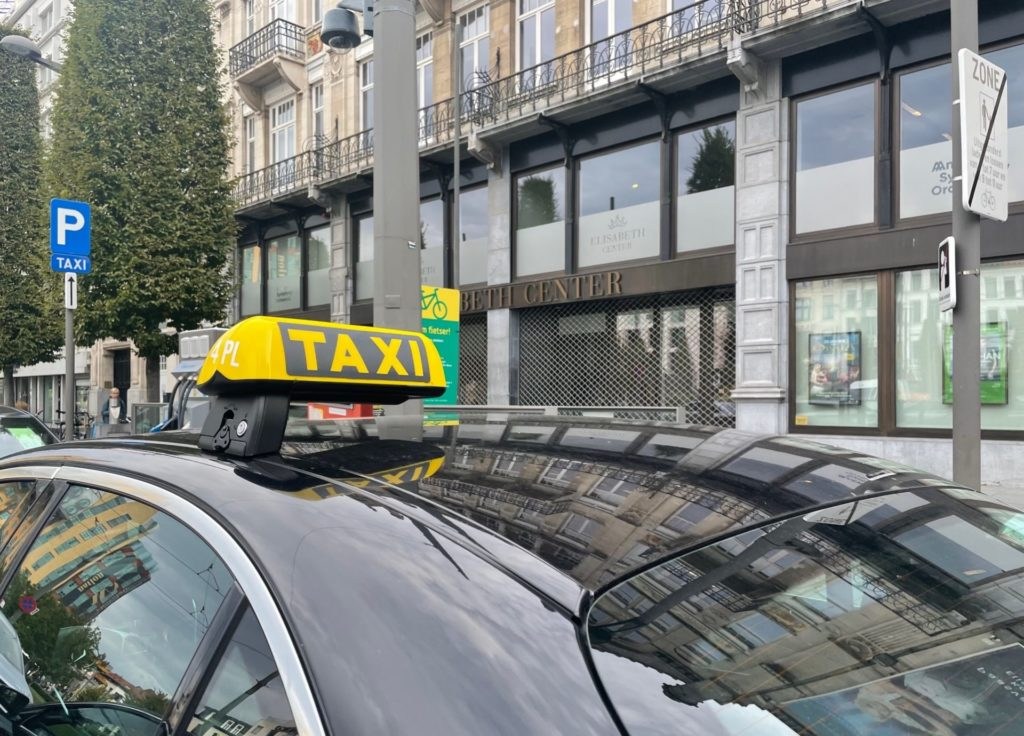The Brussels government approved its taxi ordinance in a second reading at the end of last week, news to which rideshare platforms like Uber and Bolt have reacted with cautious optimism.
“Bolt welcomes that the Brussels government has finally reached an agreement on a permanent reform of the Brussels taxi sector,” Laurent Pantusa, Country Manager Ride-Hailing at Bolt, told The Brussels Times.
“It is important for our sector to have a stable legal framework that will allow us to operate in full transparency and will allow drivers to work with legal certainty. We are also pleased to see that this decision goes in the direction we took when we launched: the coexistence of taxis and PHVs (LVCs) in Brussels.”
Uber had not yet been given a chance to read the approved text, despite the fact that the Brussels government said it would be working hand-in-hand with stakeholders in the creation of its new Taxi Plan.
“Together with drivers we have shared concrete proposals to improve the Taxi & LVC sector in Brussels. These essential points need to ensure that both the taxi sector and all 2,000 LVC drivers will have clear guidelines to continue working in our capital,” said Laurent Slits, Head of Belgium at Uber.
Related News
- Taxi sector reform targeted in new initiatives from European Commission
- ‘The last resort’: Uber brings Brussels taxi matter before Council of State
- LVC drivers plan new action in Brussels on Friday
Drivers with LVC licences for chauffeurs, like those who work for platform companies such as Uber and Bolt, have found themselves outside the legislation for traditional taxi drivers, which imposes stringent regulations for accreditation and work.
The result has been an unequal playing field, and significant tension between the traditional taxi sector and the platform drivers who they say undermine their market position, with regular, traffic-disrupting protests from both sides.
Disagreement on how to regulate Uber, Bolt
Opinions differed sharply within the government when it came to how strictly the new platforms should be regulated, Bruzz reports: Défi, Open VLD, One.Brussels-Vooruit and Groen were in favour of imposing limited regulations. Ecolo and PS stressed the importance of protecting the already-regulated taxi sector from unfair competition.
A new Taxi Plan from the Brussels government is intended to provide a uniform statute for all taxis operating in the capital region, eliminating the unfair advantage that differently-regulated apps like Uber and Bolt have when competing with taxi companies who are required to meet rigorous standards.
The draft legislation draws distinctions between the two, and requires platform drivers to apply for a licence and meet a series of conditions intended to guarantee quality service.

The Bolt app shows regular taxis as an option alongside their own drivers. Bolt began operating in Brussels in February of 2022. Photo by Helen Lyons/The Brussels Times.
It also attempts to resolve two of the biggest challenges in regulation: competition with drivers from Wallonia and Flanders (who will have to comply with Brussels legislation), and the transferability of taxi licences.
Licences for traditional taxi drivers can cost thousands of dollars, and the trading of those easily-transferable licences is subject to speculation, meaning the costs can rise even higher. Under new legislation, licences will be assigned to individual drivers and nontransferable.
No consensus yet on limits for the number of platform drivers
The approval still has to go before Belgium’s Council of State for an opinion. That council was already approached by Uber, together with two Brussels driver associations and a number of individual drivers, in regards to the enforcement of the city’s emergency ordinance, which has been interpreted differently by various stakeholders and led to the impounding of the cars of some platform drivers.
Still, the plan has not yet clarified rates for taxi services, nor whether or not a ceiling will be imposed on the number of licences granted to platform drivers– something platform companies are vehemently opposed to.
“Bolt believes that the taxi market still has great potential for expansion and that the number of licences should not be limited,” Bolt’s Pantusa said.
“Our hope is that the reform will come into force before July 22, when the temporary regulation expires.”

